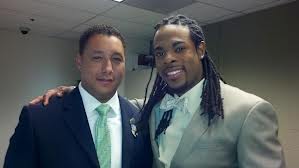Take a quick walk through the neighborhood with me. As I step out of my front door, I look over and see the well-manicured lawn of the Baptist church. Steeped in tradition, they can boast of a pastor who has served them faithfully for decades. On Sunday mornings the street is filled with shiny, clean cars and congregants walking in with smiles as bright as their clothes.
By the time I have reached my sidewalk I can see the brown bricks of the AME church that sits right next to the Baptist church. Together they take up the block and have walls no more than eight feet apart. Not quite as shiny as the Baptist church, this building is home to many church mothers and grandmothers. As you walk past there on Sunday morning, you can hear the call-and-response preaching streaming through the windows.
As I make it out into the street, I can glance to the right and see the towering church that rests upon the face of a busy street. Saturday mornings are filled with people of the community lining up to receive boxes of food to take home to their families. On Sundays people drive in to the neighborhood to take their suits and dresses inside the stained-glass-windowed church before taking their out-of-place faces back home.
I live in mini-Jerusalem.
In fact, within one large city block that I can walk, I can come in contact with no fewer than 11 active churches. As I do so, I can also say this: “Black, black, white, hispanic, white, black…” I am sure you can do the same around you. We all know the reasons: “I’m uncomfortable with their style of worship.” “I would not know anyone there.” “I don’t think my family would like it.” What is the end result? The same as it has always been.
There is an unspoken danger as we continue to flock together with like-colored sheep: as soon as there is a problem, we circle our own wagons even tighter. You would have to have been on an intense media fast this week to not be aware of what took place in Ferguson, Missouri. Just in case you missed it, a black male teenager named Michael Brown was shot and killed in the streets. Reports indicate that he was unarmed and had his hands held up. Protests have led to significant tensions, conflicts and even now to looting.
Why?
Because as soon as you heard that a police officer shot and killed a black male you never once questioned the race or gender of the officer. You already knew. Frankly, I had to go to a news report this morning to confirm that the police officer who killed Michael Brown was in fact a white male.
Does that matter? Absolutely it does. Let’s imagine that you are sitting in a predominantly black church tomorrow morning and a white male walks in dressed in a suit. How do you feel about him being there? And what is your response when the pastor laments the violence against young black males and the white man just sits there listening while everyone else affirms with shouts of “Amen!” and “That’s right!” What if he is just there to learn more? What if he was raised that remaining quiet while someone is talking is respectful?
Or take another side of it. Now you are sitting in a predominantly white congregation and a black male teenager walks in to the service wearing khakis and a polo. He doesn’t know anyone but he sits down next to your elderly grandmother. What if he just wanted to see if the people that come into his neighborhood really care about him? And what if, before the service is over, he gets up and walks out the back door and into the basement where the nursery is. Do you think someone gets up to follow him….just to check? What if he is looking for a quiet place to call his mother and tell her that he will be home in fifteen minutes because he was taught that it is disrespectful to show up late?
Your segregated church is a problem. If you don’t believe so, take a look at this picture: 
If you continue to operate as a segregated church, your community is never more than 15 minutes away from that being the scene where you live. There is an us. There is a them. And all of your wishing for a more diverse church – if you even want that – has made no changes. Why? Because no one who does not look like the face of your church is going to feel comfortable just coming in! You have to be the one who creates the change, and it should start by you going somewhere else, not your token “I invited a black or white friend” on Sunday morning.
Can you imagine if God, the Holy Spirit, and Jesus kept on having a good time in heaven and said, “Hey, any time you want to come check us out, feel free!” You know how that would go. NO! Jesus moved into the neighborhood, and thank God he did! Instead of being the them, Jesus became the us!
You have two choices, and they are the same whether you are black or white: do nothing or something. Both choices have predictable results. If you do nothing, your son, grandson, or nephew could be shot in the streets for running while braided. If you do something, maybe he won’t.
I am white. My sons are black. And white. And when I really get it right, I know that my family is black, white, Korean, Italian, South African, Australian, Russian, Iranian, Iraqi…
It’s simple. And your solution is so remarkably easy that you’d almost miss it. Again, Jesus comes to your aid with your answer:
“And a multitude was sitting around Him; and they said to Him, ‘Look, Your mother and Your brothers are outside seeking You.’ But He answered them, saying, ‘Who is My mother, or My brothers?’ And He looked around in a circle at those who sat about Him, and said, ‘Here are My mother and My brothers! For whoever does the will of God is My brother and My sister and mother.'” (Mark 3:32-35, NKJV).
Go find your brother and your sister and your mother. Don’t let the first time you meet them be when you finally realize that you have the same Father.

